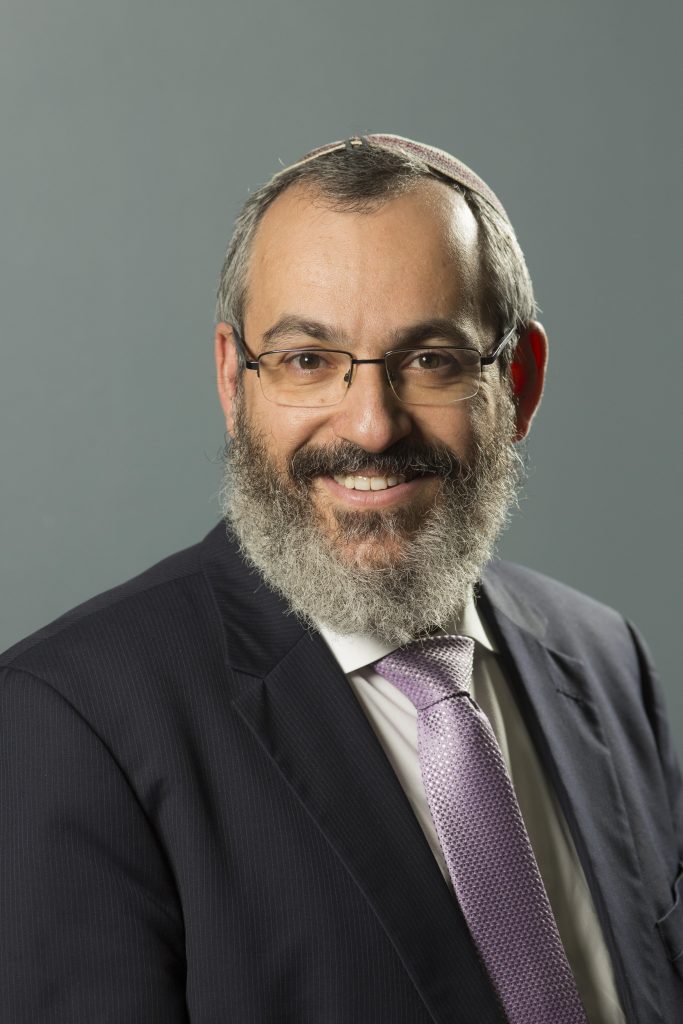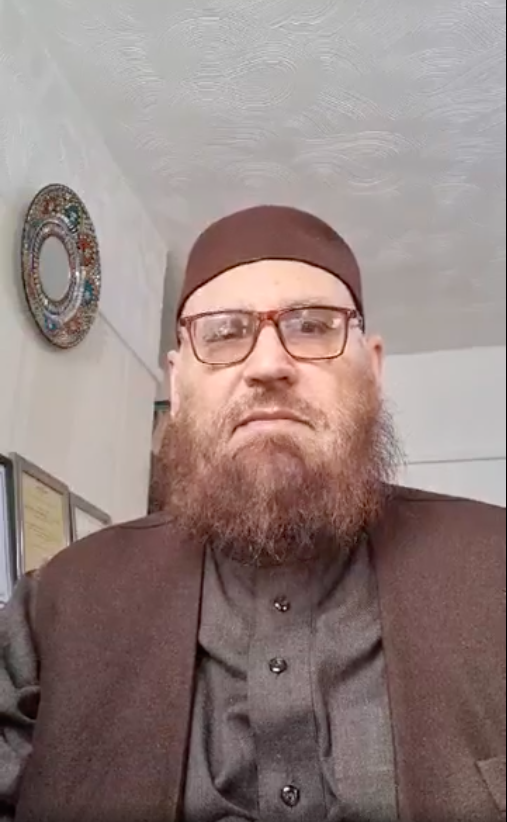It’s been 395 days since the World Health Organization declared COVID-19 a pandemic. Prior to March 2020, Rabbi Avichai Apel (a member of the Executive Board of the Germany’s Orthodox Rabbi Conference), had likely not known that running a YouTube tutorial on how to make matzah (a flat, unleavened bread that is the only type of “bread” Jews may eat during Passover) would become a vital digital lifeline that Germany’s Jewish communities would grab onto during a crisis. In the UK, Imam Mohammad Ismail, a British scholar and Muslim Chaplain at the University of Sheffield, also noticed the rise of the internet as an irreplaceable congregational tool. Although, worryingly, to the exclusion of an older generation lacking the same level of comfort in living out their social and spiritual lives online.
The rise of virtual religious practice is perhaps one of the most stark observations by the two faith leaders, who recently shared with the MJLC observations of how, a year on from its onset, COVID has affected religious observance.
Communities struggle with isolation and uncertainty…
Yet, beyond the how of how to continue to follow faith traditions during a pandemic, a conundrum largely resolved by Zoom and WhatsApp, emerged the question of why? According to Rabbi Apel, for his community in Germany, COVID introduced uncertainty to religious communities who rely on faith as a sure predictor of outcomes. Questions of where the virus had come from, how it would be treated, and when the pandemic would be over, soon gave way to broader existential musings. Is COVID a punishment from God? How have we become a society that joins digital communities of virtual strangers living continents away, without even knowing the name of our neighbors next door? What is the point of being part of a community, if people can’t gather together?
Rabbi Apel cites a recent conversation with a 98-year-old Holocaust survivor, who described the horror of pandemic-imposed isolation: “In Auschwitz, we had nothing, but at least we were together,” she recalls. “Now we have everything, but we are alone. And that is too much.”

In the 14 months since the onset of COVID, Imam Ismail has seen innovation as just one part of the solution to religious communities forced into separation but yearning to be united in practicing the rituals of their faith. “It’s not just about innovation in the sense of technology, but innovation in the sense of how we recreate the way we pray – so it aligns with our beliefs,” he says. When the mosques reopened in June 2020, a clear generational divide was evident. Yes, we want to pray, said some of the younger generation. But no, we don’t wish to do it with masks on. Social distancing guidelines determined that worshippers stay 2m from one another in houses of worship. The Imam noticed that these manmade guidelines were perceived, by a few, as secondary to the holy teachings of how to properly perform the salat (the Muslim prayer ritual that is done first standing and later kneeling on the ground).

For the Imam, this tension between perfect ritual practice and the need to adhere to prescribed COVID protocols was key to resolve. He did so by highlighting Islamic doctrine. “Protecting the community, together, that is what is most important, as a Muslim,” said the Imam. Rabbi Apel echoes this sentiment. “Pikuach nefesh (the concept that saving a human life is more important than any commandment) is the principle most closely followed by the Jewish community during lockdowns,” he says.
COVID has caused a “spiritual emergency”…
Rabbi Apel believes that the pandemic has also wrought an invisible toll on the souls of religious communities. “During COVID we have seen two kinds of emergencies: A physical emergency, and also a spiritual emergency,” he says. “Religion is how you deal with the spiritual emergency. When you close synagogues, at a time when people need them most, you might say you are protecting their physical health, but you’re killing them from the spiritual side.”
The question of whether governments have provided adequate support to religious communities during COVID draws mixed responses. In Sheffield, Imam Ismail has seen mourning rituals closely monitored, and even interrupted, by police eager to impose social distancing restrictions at burial sites. At the same time, in Germany, at the outset of the pandemic the Jewish community held discussions about how best to resist potential proposals from the government to cremate, rather than bury, those who had died from COVID, to prevent spreading the virus to mourners. Thankfully, the proposals never materialized.
With the pandemic intensifying economic inequities, the scapegoating of religious and ethinic minorities became a familiar ‘cure’ for society’s ills, with spikes in antisemitism and Islamophobia being marked across the globe. According to the International Dialogue Centre, KAICIID, researchers warned of an increase in anti-Semitic sentiment prompted by COVID-19 conspiracy theories. In the United Kingdom, India and Sri Lanka, online vitriol targeted Muslim communities, and across the globe. The UN also documented numerous false allegations that migrants and refugees were sources of the virus.
Yet Rabbi Apel and Imam Ismail both remain convinced that shared values will triumph over resistance to difference. “I am really proud that this pandemic has shown that there is so much more that brings us together. Around here, people call them British values, but I call them common values. Values that connect us as people,” says the Imam. The Rabbi draws tremendous encouragement for how the German Jewish community has rallied to support other communities in need around Europe. More than that, local Jews are sustaining one another through micro donations – many more people are giving, even if the value of individual donations has fallen – and through acts of service, like going shopping for one another, or preparing meals for those who cannot do so for themselves.
The way forward…
Imam Ismail describes the post-pandemic UK he wishes to see. One that tackles inequity with even more vigor. He is dismayed at what he sees as permissive political maneuvering that is becoming pervasive across Europe, and rhetoric that relies on demonizing difference. He is convinced that this tactic can be overcome through interfaith, and intercultural initiatives, like the MJLC. “That’s why I am working with Jewish colleagues, with Christian colleagues, and others, so that we can defeat this monster of racism”, says the Imam. The message of the need for a collaborative spirit of goodwill is one that the Imam repeats to his followers in the mosque, on his social media, and as a guest on various BBC programming outputs.
For Rabbi Apel, he is hopeful that the spike in virtual engagement with Jewish rituals is a trend that sustains, and even grows. Yet even his optimism is tempered with a grave concern over the social cost of COVID – especially among young adults, who have seen their efforts to build lifelong connections abruptly halted. “What about young people who were thinking about building a family (at the start of 2020)? They have lost, over this last year, the possibility to get to know one another. There are surely those who would have otherwise have gotten married during this time. I think this will be a huge loss for our community, and only in 10 or 15 years will the true cost of this side of the pandemic be known.”
Reinforcing the importance of connection, the Rabbi remains hopeful that the same sense of isolation that so traumatized his wife’s grandmother, will not scar his 5-year old son, who now struggles to understand the definition of friendship, and of community, in a time when gatherings and real-life connection are, paradoxically, considered antisocial.
We don’t yet know how effective the vaccine rollout will be in healing the psycho-social and economic scarring of the past 14 months. No matter how the future unfolds, for the Rabbi and the Imam, this crisis has reinforced the importance of continuing to reinforce the bonds of faith, and provide comfort to the communities that rely on them.
By Iris Jumbe
